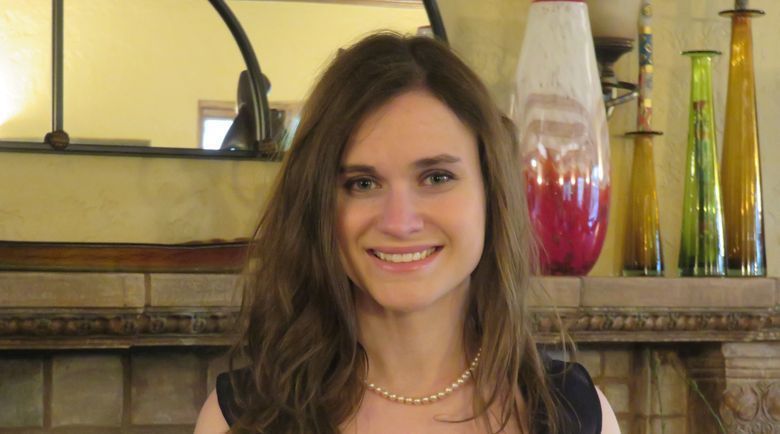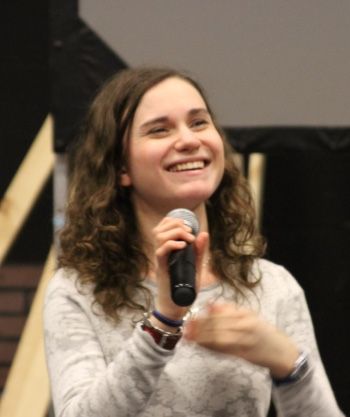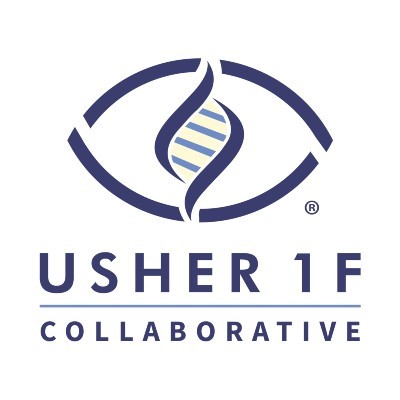

In medical TV dramas, such as House, Grey’s Anatomy, and ER, we often meet characters who come in with mysterious diseases and illnesses. When they come into the hospital, they are often complaining of symptoms that sound minor, such as a headache or a stomachache. Throughout the episode the doctors and patient bond, and, eventually, the doctors realize the patient has a devastating disease that has no treatment, and they must be the ones to break the news. As somebody, who has watched every episode of Grey’s Anatomy since season 1, I am always left thinking, “I am so thankful I am not that poor patient!” However, I am that poor patient because I am living with a rare disease—Usher syndrome type 1F.
Growing up in Atlanta, Georgia, I was like any other “normal” child, who went to school, had friends, and a life. When I received my cochlear implant at 15 months, I was the youngest child in the country. With hard work and dedication from both of my parents, along with support from my Auditory-Verbal therapist, I excelled in the mainstream environment. Every single day, I dealt with the challenges of being deaf. The challenges of being deaf involved having a difficult time hearing in loud situations, such as the cafeteria at school, group work in the classroom, fitting in with my hearing classmates, and many other situations. Facing these challenges often involved sweat, tears, and determination. No matter what happened, I always tackled the obstacles and succeeded.
Just when I thought I was done dealing with the obstacles of being deaf, in the winter of 2006 at a seemingly routine eye doctor appointment, I was hit with the devastating diagnosis of Usher syndrome type 1. I was eleven-years-old, and I was sitting in the chair playing Kirby on my Gameboy. I was bored and desperate to go home like any average kid. The eye doctor was talking to my parents about my sister, when suddenly I heard my sister crying. In that moment, I felt lost and confused because I had no idea what was going on. Like any other concerned sister would ask their mother…
“Mommy, what is going on?”
“There’s some disease in her eye?”
“Wait, my sister has some disease?
“Jess, I don’t know what is going on! I cannot answer your question!”
Minutes later my dad, a surgeon still in his lab coat, came rushing into the room. The scene continued to unfold before my eyes as I watched the doctor talk to my parents and sister. I felt frustrated because I could not understand anything. The day continued with an hour in a dark room and several hours of testing to get the diagnosis of Usher syndrome. On the car ride after the appointment, I still did not fully understand until a few years later that I also have Usher syndrome type 1F.
It has been almost two decades since that doctor’s appointment that forever changed my life. As a fully functional young adult in her late 20s, I am living my life as independently as possible. While I can live a “normal” life, I am still struggling due to my declining vision. Since childhood I have loved going to planetariums and seeing the different constellations and planets. Several years ago, the last time I visited a planetarium, as the guide went to point out Ursa Major, one of my favorite constellations, I could not see it! All that appeared to me was pitch darkness and no Ursa Major.
Imagine being told that you could no longer do the thing you loved the most due to your disease. While my love for planetariums and seeing the planets and the stars may sound simple to someone else, losing that opportunity sounded like the worst thing in the world to me. Having that taken away was not my fault at all because I did nothing, and yet it happened.
Despite living with Usher 1F, I have continued to pursue my dreams. I am currently in graduate school, working toward a PhD in Social Policy. I have traveled the world and been to many different places—Australia, South Africa, Denmark, Germany, Poland, Switzerland, and Italy. During my spare time, I do ceramics and origami. My greatest fear is losing more vision because it will continue to prevent me from doing the things I love most. I hope to pursue a career as a college professor, doing both research and teaching. To be able to continue reaching towards my dreams and goals, I need to retain and restore my vision.
Jessica wrote a poem about living with Usher Syndrome for her high school English class:
Acceptance
I don’t know how, but it’s going to happen.
I have to accept it, even though I don’t want to.
Soon darkness will surround me.
Cutting off, everything that I know
Soon I will not be able to see the past, present, or future.
The only thing that I will be able to see…
Is complete utter darkness and blackness
I don’t know what to do.
Should I should accept it, or deny it?
What should I choose?
Both of these paths will go in the same direction, and end in the same spot.
Why should I choose, when the result is going to be the same.
Should I hope that things will change?
Or should I just give up?
But when all seems lost…
There is always still a chance of hope left.
That tiny, little, ounce, and ember of hope
It’s still there, and will always be there.
